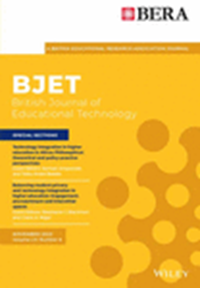Enhancing students' learning outcomes in self-regulated virtual reality learning environment with learning aid mechanisms
Abstract
Virtual Reality (VR) has demonstrated significant advantages in various educational fields as it allows learners to actively learn in high interactivity and realism under their learning pace. However, for low-achieving students, VR learning environments may introduce some challenges, which are problems encountered during their learning process, which lead to difficulties in self-regulating their learning progress and becoming disoriented in the lack of guidance. This study aims to explore the improvement of self-regulated VR learning environment based on the Cognitive Theory of Multimedia Learning and enhance the performance of low-achieving students. We designed a VR course on electronic circuit hardware and programming, providing participants with a series of learning aids in the VR learning environment, including feedback, hints and guidance. Feedback aids provide correct or incorrect feedback after each task or test, guidance aids display progress following each task or test and hint aids offer guidance when inactivity is detected. A quasi-experiment was conducted by using questionnaires and practical tasks to assess the participants' cognitive levels, practical hands-on skills, self-regulated learning abilities and learning engagement after VR learning. The results demonstrated significant improvements in all learning indicators for low-achieving students.
Practitioner notes
What is already known about this topic
- Virtual Reality (VR) presents itself as a promising tool for self-regulated learning (SRL).
- SRL abilities are of paramount importance within the learning environment of VR.
- In the context of the self-regulated Virtual Reality (SRVR) learning environment, low-achieving students have received little attention.
What this paper adds
- It examines the effectiveness of learning aid mechanisms within the SRVR learning environment.
- These mechanisms support cognitive levels and increase engagement in SRVR learning.
- Low-achieving learners benefit from the presence of learning aid mechanisms in the SRVR learning environment.
Implications for practice and/or policy
- Providing learning aid mechanisms within the SRVR learning environment can potentially augment learning.
- Learning aids mechanism have the potential to provide comprehensive support within the SRVR setting.




 求助内容:
求助内容: 应助结果提醒方式:
应助结果提醒方式:


